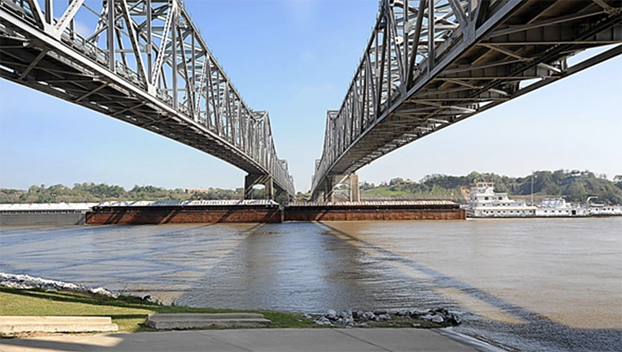Low water means supply chain disruption and higher prices
Published 7:30 am Sunday, October 30, 2022
The Mississippi River continues with water levels near historic lows.
That means good hunting for the many people out on the river’s banks in Natchez and Vidalia searching for unique treasurer and artifacts previously buried under the current of the river.
At the same time, those low water levels mean a disruption in the nation’s supply chain as barges carrying all kinds of goods are having difficulty navigating the river and even greater difficulty making their way to docks and ports along the river.
That leads to higher food prices as farmers harvesting corn and soybeans pay more for shipping. And because of the low water levels, barges cannot be fully loaded, which means they ship fewer goods in order to be able to navigate the low water.
“We’ve been experiencing this for a couple of months,” said Sarah Calhoun, manager of the Vidalia location of Terral River Services. “We are negatively affected by low water and high water.”
Calhoun has worked at the Vidalia dock location for 14 years.
However, Natchez and Vidalia are fortunate, she said, because barges are still able to make it to their docks.
“We have not had to shut down on any avenue of what we do here. Like today, we were able to unload rock barges. This is the first rock barge I’ve received in quite a while.”
Terral River Services unloads and then sells the rock to customers for a variety of uses.
“Our facility is able to exist whether the river is high or low,” Calhoun said.
Other locations have no water anywhere near where barges need to unload.
“We feel the struggle. The harvest season wasn’t great with all the rain we had in August. For the last 10 years, we’ve had nothing but high water, so the sediment just piles up and piles up,” she said.
The river is on the rise a bit, but what’s needed is “a lot of rain in the Ohio Valley,” Calhoun said. “We saw this back in 2012.”
“Everybody is paying attention to the river right now. They are seeing things in it that they have never seen before, like shipwrecks. But most of the time, everybody kind of forgets about the river. It’s really our main source of commerce. Most people don’t realize how much commerce really happens on the river.”





